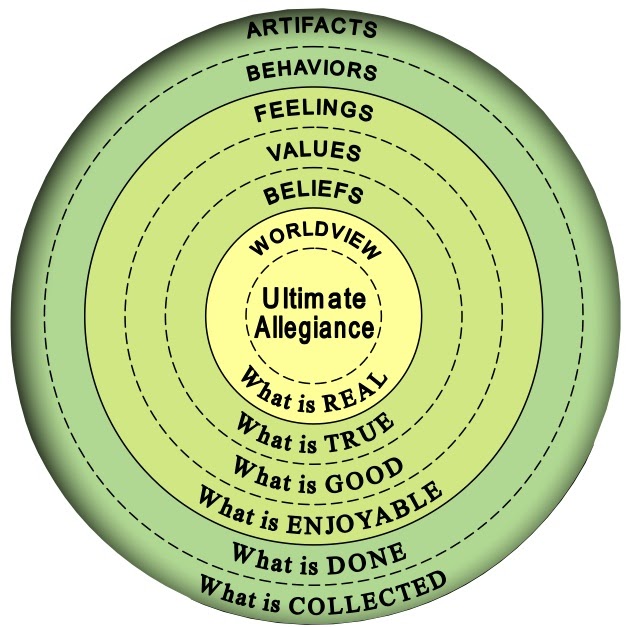
PFG London The onion model of culture
The onion model: Myth or reality in the field of individual differences psychology? @article{Cools2012TheOM, title={The onion model: Myth or reality in the field of individual differences psychology?}, author={Eva Cools and Kim Bellens}, journal={Learning and Individual Differences}, year={2012}, volume={22}, pages={455-462}, url={https://api.

Stakeholders' Onion Model Download Scientific Diagram
The onion model, originally designed as a framework for reflection and development in teacher education, consists of the following layers, from the outside to the inside: environment, behavior, competencies, beliefs, identity, and, at the center, mission. The levels in this holistic model can be seen from different perspectives.
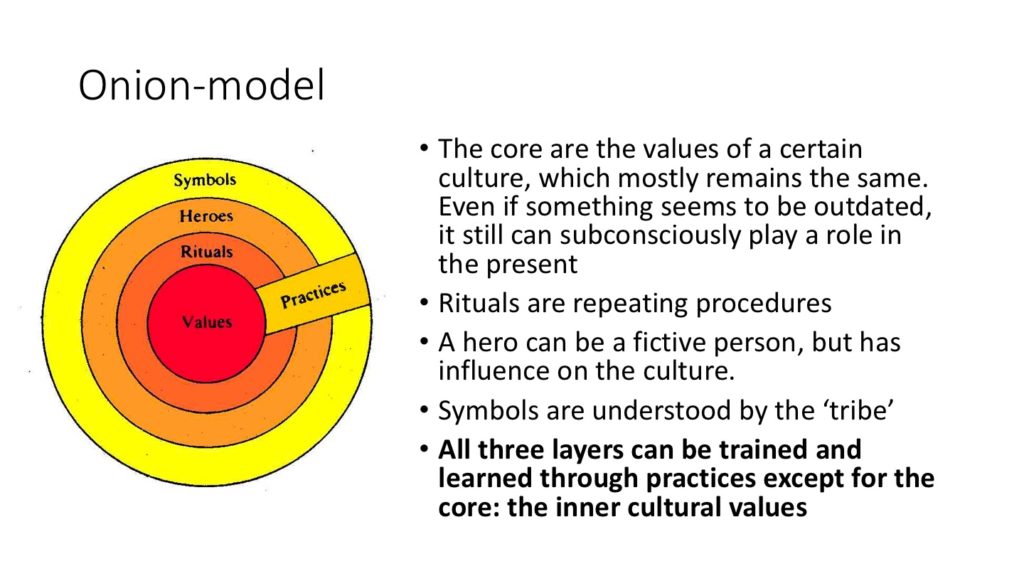
Hofstede S Onion Model
Cornelia Helmstedt. Thomas Richter. In this paper, we first of all deduce factors for the analysis of learning culture from HOFSTEDE'S onion model of culture (Hofstede, Hofstede, 2005) and build.

, The onion model, Korthagen (2004) and Meijer et al. (2009) Download Scientific Diagram
During onion-model growth, descendant layers sample from the standing diversity of a progenitor layer, and whereas much of this diversity is retained at the growth front (e.g. Hallatschek & Nelson, 2010), some of the rarer variants must be lost by drift in the emergent layer.
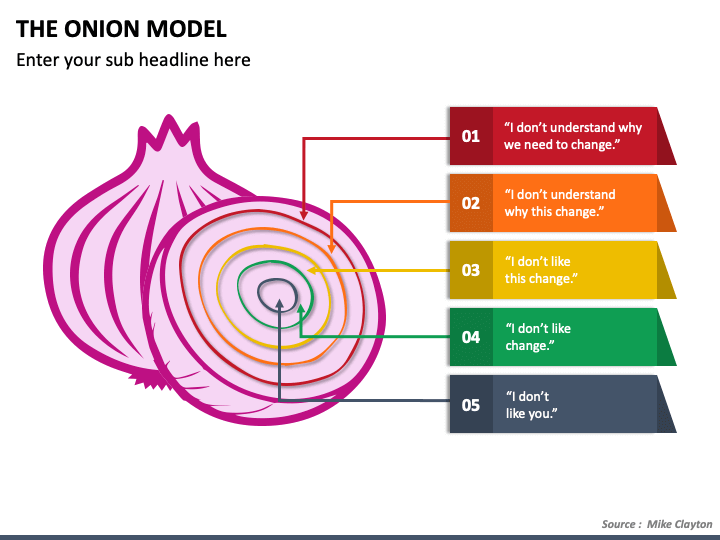
The Onion Model PowerPoint Template PPT Slides
The onion model helps to differentiate between behavior-oriented reflection and a deeper kind of reflection, in which attention is given to three goals: (1) building on strengths and ideals (called "the inner potential") of the person, (2) helping the person deal with inner obstacles limiting the actualization of the inner potential, and (3.

Onion Model Of Culture DE Model
They are summarized in the onion model (Korthagen, 2004), showing the following levels: (1) environment, (2) behavior (performance), (3) competencies, (4) beliefs, (5) identity, and (6) mission, as well as the basic questions related to these layers. A harmonious alignment between the layers is the key to effective functioning.
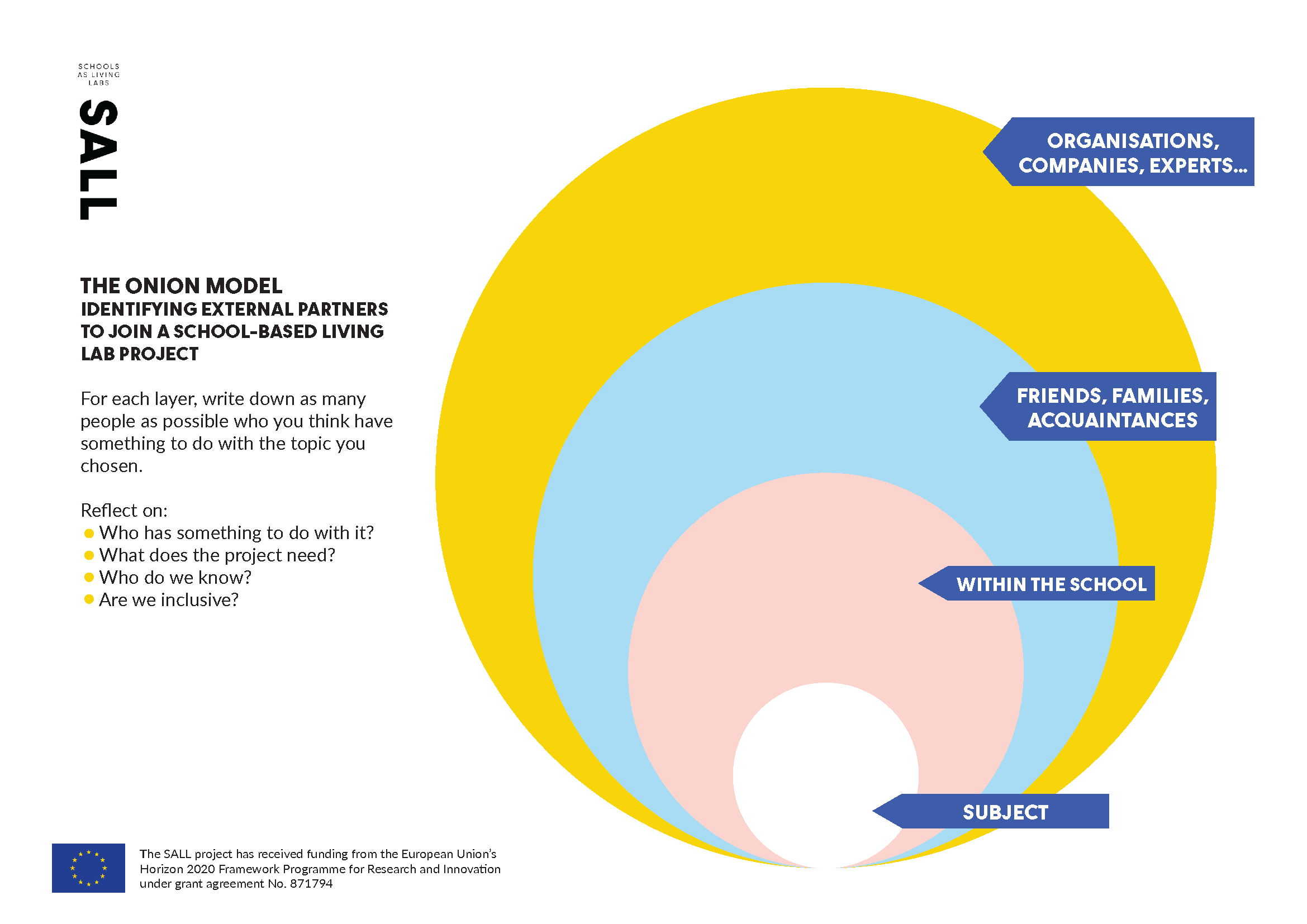
The onion model a quick tool for external partners' engagement in school projects SALL
The 5-point Likert scale items were constructed based on the Onion Model, with answer options ranging from 1 = strongly disagree to 5 = strongly agree. The higher the score, the more student-centred the teachers' perspective is. The SCPT-44 was developed by the first author and six local experts with master's or doctoral degrees in medical.

Module 3 Introducing Human Factors and the Onion model YouTube
The research onion model was presented by Saunders, Lewis and Thornhill in their book titled Research Methods for Business Students. This model aims to explain the different stages of writing a dissertation to help students create a better organised methodology.

Hofstede S Onion Model
The "Onion Model": A Layered Approach to Documenting How the Third Wave of Open Data Can Provide Societal Value Andrew J. Zahuranec · Follow Published in Data Stewards Network · 7 min read ·.

The 'onion model' of layers showing conditions for learning in skills... Download Scientific
Abstract: Korthagen's Onion model is one of the influential novelties of the Core Reflection approach, including exterior layers of reflection expanding from the surface to the interior ones. The aim of this study was to investigate the effectiveness of a proposed training program based on the Onion model in developing reflective thinking skills and attitudes towards the profession among EFL.
Hofstede S Onion Model
Creating the Onion Model by Mike Clayton - September 14, 2011 In the September 2011 issue of Training Journal, I describe how I developed the Onion Model that is at the centre of The Handling Resistance Pocketbook. Here is that article. Models are the way that human beings understand our world, and everything we experience.
1 Hofstede's Onion Model of Culture Cultural Values are located at... Download Scientific
The onion model of human factors provides a theoretical framework for design-related activities, like evaluating existing interfaces in different cultures.

Hofstede`s Onion Model of Culture culture Pinterest Onions and Intercultural communication
onion model can be use d as a one of the ways to d esign a research methodology. The research . onion model, was first introduced in 2007 by Mark Saunders, Philip Lewis and Adrian .
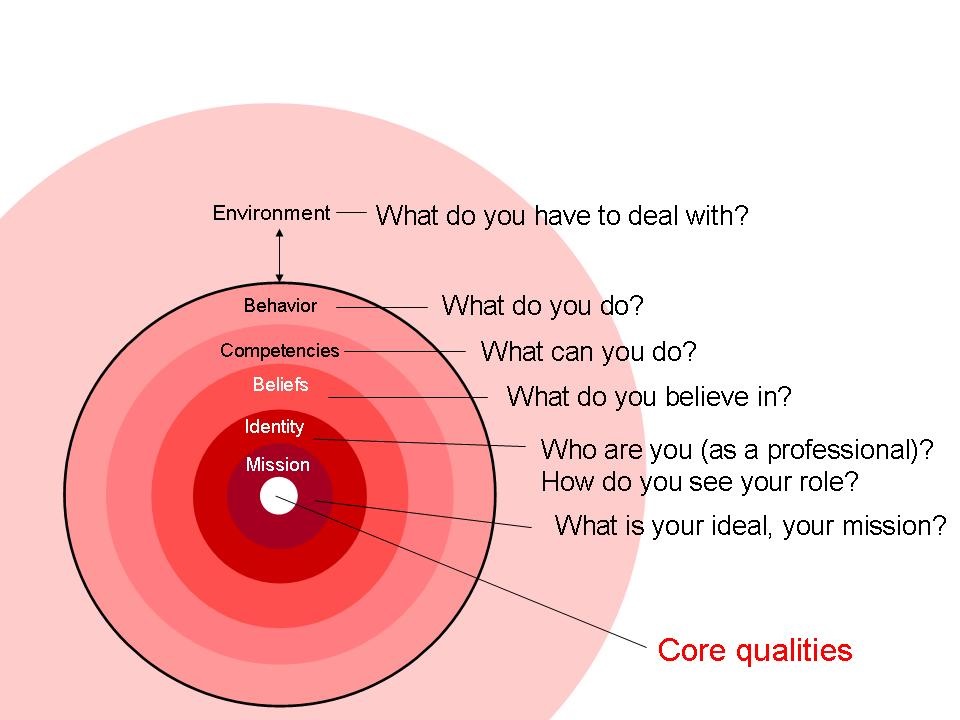
Professional development of teachers and teacher education pedagogy Korthagen
The onion model is one of the most widely cited integrated models within the style field ( Coffield, Moseley, Hall, & Ecclestone, 2004) and ample studies build further on the model's assumptions (e.g., Hsieh et al., 2011, Richardson, 2011 ), as it provides an interesting way to distinguish related concepts theoretically.

The 'onion model' of CM (a) the 'layers' of an organisation and (b)... Download Scientific
(2016) notices that research onion concepts create a firm basis for development of coherent and justifiable research design. Raithatha (2017) also claims that on the basis of the research onion model an appropriate research methodology can be designed step-by-step, thus it can be used as the main academic research model.

The 'onion model' of layers showing conditions for learning in skills... Download Scientific
Onion Layer 1: Research Philosophy The very first layer of the onion is the research philosophy. But what does that mean? Well, the research philosophy is the foundation of any study as it describes the set of beliefs the research is built upon. Research philosophy can be described from either an ontological or epistemological point of view.